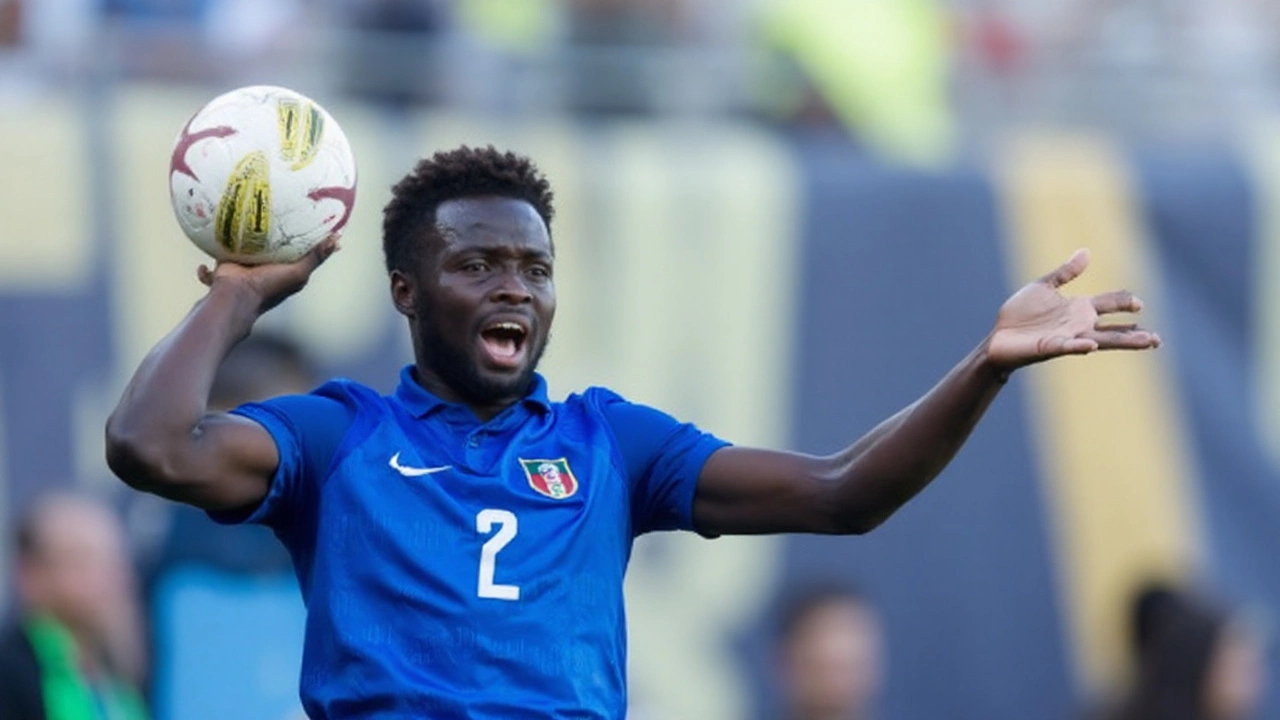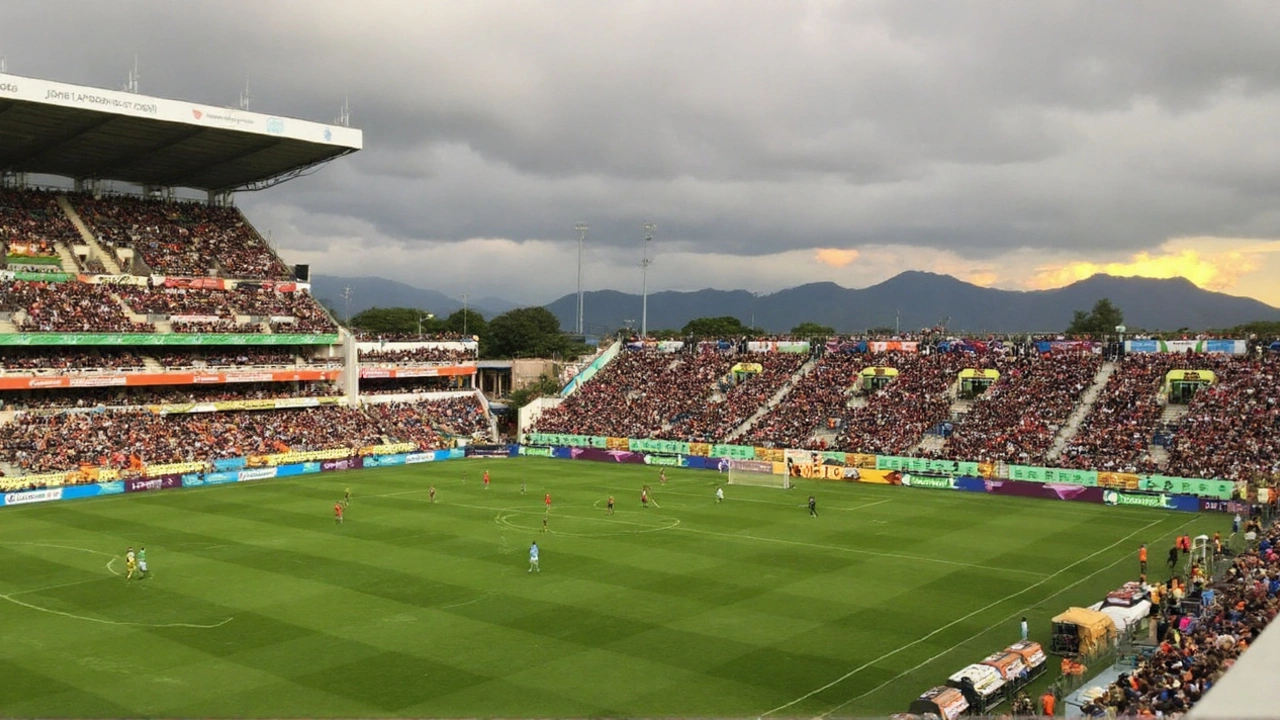By Firman — San José
A two-goal cushion should calm the nerves. Not in San José. The night ended in chaos and relief after Costa Rica vs Haiti served up six goals, a second-half hat-trick, and a stoppage-time twist that kept both World Cup dreams on track. Costa Rica roared ahead 2-0 by halftime, Haiti flipped the match with three after the break, and a 90+1 minute equalizer dragged it back to 3-3. For a September qualifier, it felt like tournament football.
Early control, late chaos
The tone was set almost immediately. Kenneth Vargas struck in the first minute, a lightning start that put Haiti on the back foot before they had settled. The Estadio Nacional snapped to life, and Costa Rica rode that surge through most of the first half, using quick combinations and front-foot pressure to control territory and tempo.
Alonso Martínez doubled the advantage in the 35th minute. With a two-goal lead and the crowd behind them, Costa Rica looked comfortable at the break. They had what coaches crave in qualifiers: scoreboard control, energy from the stands, and a game shaped to their liking.
Then came the swing. Haiti came out with purpose. They pushed higher, took more risks, and won second balls that Costa Rica had dominated earlier. Duckens Nazon, who has carried Haiti’s attack for years, seized the night. He pulled one back in the 55th minute, a strike that shifted the noise and the nerves. Three minutes later, he produced the moment everyone will remember: a bicycle kick in the 58th that stunned the stadium and leveled the match in style.
From 2-0 to 2-2 in three minutes, the emotional current flipped. Costa Rica hesitated. Haiti ran at the space. The visitors sensed more and kept asking questions down the channels and at the top of the box. Nazon then completed his hat-trick in the 86th minute, a ruthless finish for 3-2 that felt like the final punch.
But stoppage time still had a say. Juan Pablo Vargas rose to the moment in the 90+1 minute with the equalizer. It was a rescue job that didn’t erase the pain of surrendering the lead, but it steadied Costa Rica’s campaign. The final whistle left both sides exhausted and still alive in Group C.
- 1' — Kenneth Vargas puts Costa Rica 1-0 up.
- 35' — Alonso Martínez makes it 2-0.
- 55' — Duckens Nazon pulls one back for Haiti, 2-1.
- 58' — Nazon’s bicycle kick levels it, 2-2.
- 86' — Nazon completes the hat-trick, Haiti leads 3-2.
- 90+1' — Juan Pablo Vargas equalizes, 3-3.
The draw leaves Costa Rica and Haiti on two points from two matches in the CONCACAF World Cup Qualification 3rd Round Group C. Neither has won yet; neither has lost. With margins this tight, rescuing a point at home matters. So does rallying from two down on the road. Both will feel they could have taken more. Both will know this point could matter later.

Tactics, turning points, and what it means
This was a match of phases. Costa Rica owned the first half with controlled pressing and tidy combinations, forcing Haiti deeper and funneling play into areas where the hosts could win the ball back. The early goal helped; Haiti had to open up sooner than planned, and Costa Rica fed off the transition moments that timing creates.
After halftime, Haiti shifted. They pressed higher, took more initiative in midfield, and found better support around Nazon. The Haitian forwards worked the gaps between Costa Rica’s lines, pulling defenders into uncomfortable choices. That small tactical tweak produced big momentum. The first goal back was the spark. The bicycle kick was the shock. And once the game tilted, it stayed tilted for a long stretch.
For Costa Rica, the late equalizer saved the night, but the second half will sting. Game management with a two-goal lead demands composure and control; instead, the match became open and stretched. Costa Rica lost the grip they had built in the first 45 minutes. The lesson is simple and clear: when the intensity rises, slow the rhythm, protect the ball, and turn the crowd into oxygen rather than expectation.
For Haiti, the takeaway is powerfully positive. Responding to an early gut punch on the road is hard; scoring three after halftime is rarer still. Nazon’s hat-trick will grab headlines, but the team’s collective push—winning duels, pressing in waves, and running beyond markers—made it possible. They left San José with a point and a statement: they have the tools to hurt anyone in this group.
Set pieces and rest defense also played their part. Costa Rica’s stoppage-time equalizer came in the period where focus is hardest to sustain and the pressure is highest. Those are the moments where structure meets emotion. Haiti can be proud of the comeback and still frustrated that they didn’t close it out.
Rivalry context adds another layer. The head-to-head now reads Costa Rica two wins, Haiti one, and two draws. The gap is narrow, and nights like this keep it that way. When the stakes climb again later in the round, both teams will remember how fast this fixture can flip.
Beyond the scoreboard, individual stories stood out. Kenneth Vargas’s early strike set the tone and reminded everyone how dangerous Costa Rica can be when they break early and cleanly. Alonso Martínez’s first-half goal gave the hosts breathing room that should have been enough. Juan Pablo Vargas’s late header (and timing) carried the weight of the night, a defender stepping up when the attack ran out of ideas.
Nazon, meanwhile, delivered one of the standout individual displays of the qualifying cycle. A hat-trick away from home is rare; a hat-trick with a bicycle kick at its heart is unforgettable. He gave Haiti belief, points, and a highlight that will live long after the group stage ends.
What comes next is the grind. Group C looks tight, and draws like this one can swing the table later when tiebreakers come into play. Home matches become must-take opportunities. Away days demand resilience and smart risk-taking. Coaches will comb through the video for details: Costa Rica’s spacing after turnovers, Haiti’s lines of pressure, and how both sides managed—or failed to manage—the match after big emotional swings.
Two matches in, neither side has separated from the pack, and neither has fallen off. That keeps the door open for both to push toward the 2026 World Cup. Nights like this are the reason qualifying captivates: momentum turns fast, heroes appear from nowhere, and a single stoppage-time moment can reshape a month’s work.
San José felt all of that in 90-plus minutes—joy, shock, panic, and finally a breath of relief. The point goes in the column. The lessons go in the notebook. And the race in Group C stays very much alive.

